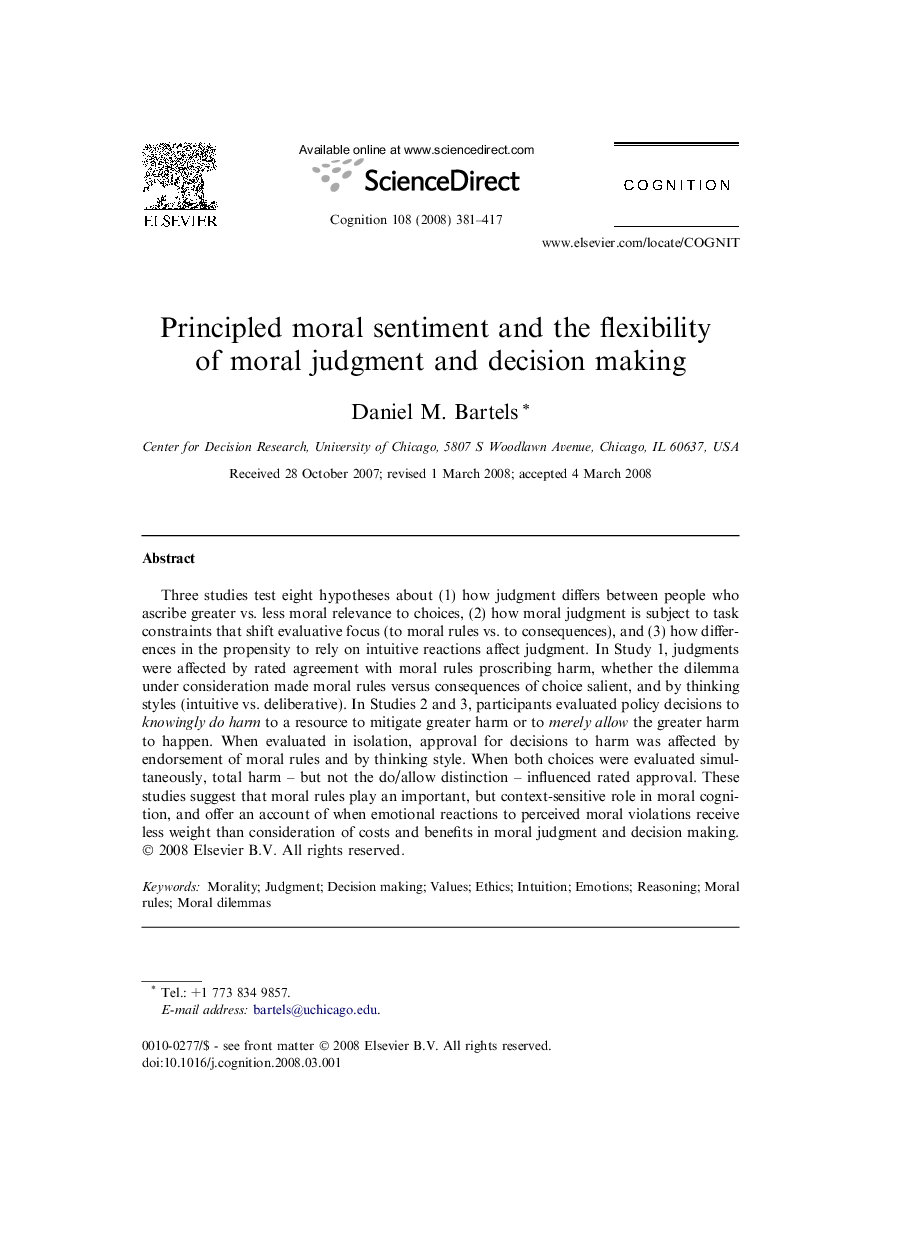| کد مقاله | کد نشریه | سال انتشار | مقاله انگلیسی | نسخه تمام متن |
|---|---|---|---|---|
| 927082 | 921940 | 2008 | 37 صفحه PDF | دانلود رایگان |

Three studies test eight hypotheses about (1) how judgment differs between people who ascribe greater vs. less moral relevance to choices, (2) how moral judgment is subject to task constraints that shift evaluative focus (to moral rules vs. to consequences), and (3) how differences in the propensity to rely on intuitive reactions affect judgment. In Study 1, judgments were affected by rated agreement with moral rules proscribing harm, whether the dilemma under consideration made moral rules versus consequences of choice salient, and by thinking styles (intuitive vs. deliberative). In Studies 2 and 3, participants evaluated policy decisions to knowingly do harm to a resource to mitigate greater harm or to merely allow the greater harm to happen. When evaluated in isolation, approval for decisions to harm was affected by endorsement of moral rules and by thinking style. When both choices were evaluated simultaneously, total harm – but not the do/allow distinction – influenced rated approval. These studies suggest that moral rules play an important, but context-sensitive role in moral cognition, and offer an account of when emotional reactions to perceived moral violations receive less weight than consideration of costs and benefits in moral judgment and decision making.
Journal: Cognition - Volume 108, Issue 2, August 2008, Pages 381–417